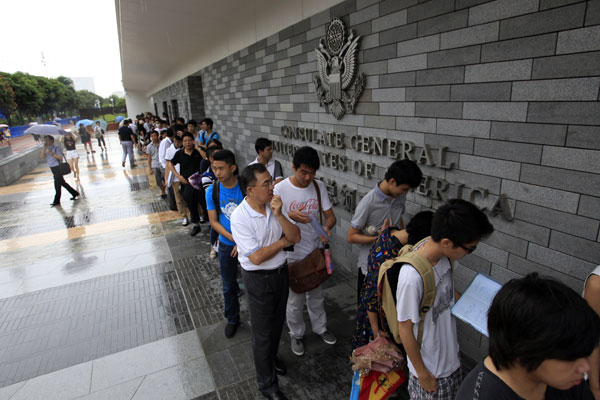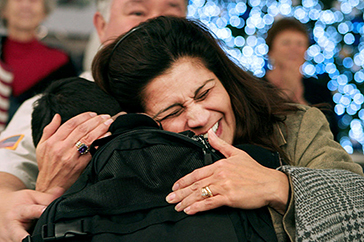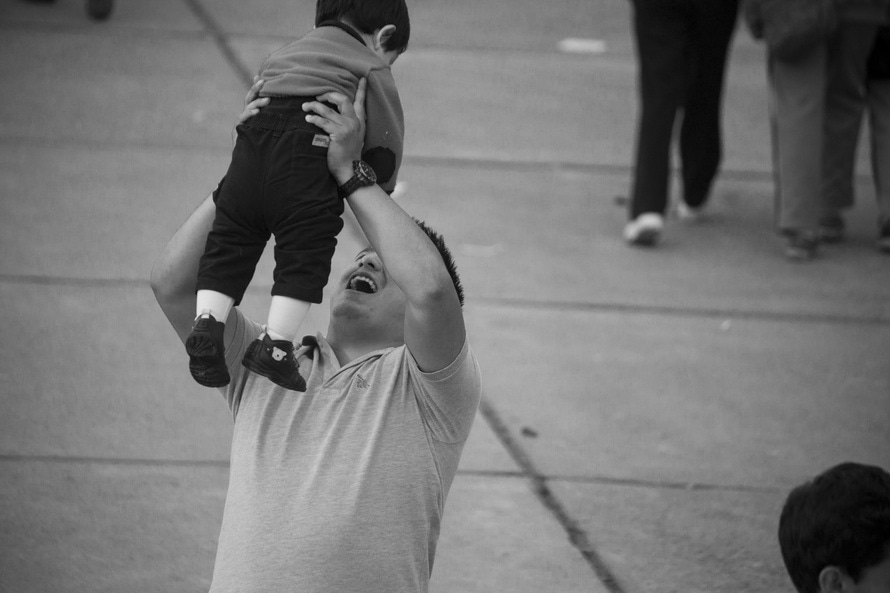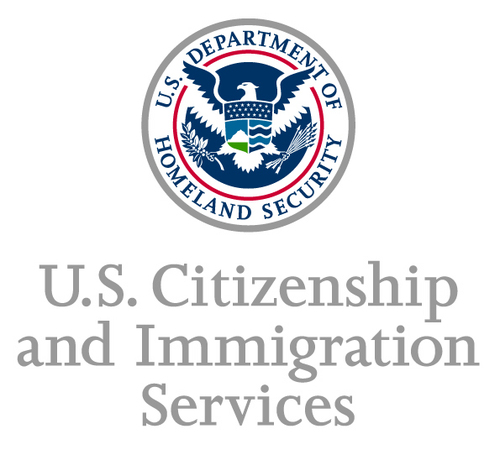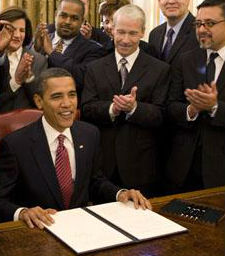 The U.S. immigration laws appear to finally be on it's way to recovery and heading to the "Holly Grail" of comprehensive immigration reform. Following Obama's victory in November, the Department of Homeland Security (DHS) has acted quickly to published a final Rule for the much awaited application for a Provisional Waiver for undocumented immigrants. This Provisional Waiver is a Godsent to the Spouse or Parent of a US citizen that are unable to adjust their status to a legal resident while in the U.S. because they either entered illegally or have remained out of status for more than six months. The rule covers the process of fiing the Provisional Waiver on new form I-601A . Filing commences on March 4, 2013.
The U.S. immigration laws appear to finally be on it's way to recovery and heading to the "Holly Grail" of comprehensive immigration reform. Following Obama's victory in November, the Department of Homeland Security (DHS) has acted quickly to published a final Rule for the much awaited application for a Provisional Waiver for undocumented immigrants. This Provisional Waiver is a Godsent to the Spouse or Parent of a US citizen that are unable to adjust their status to a legal resident while in the U.S. because they either entered illegally or have remained out of status for more than six months. The rule covers the process of fiing the Provisional Waiver on new form I-601A . Filing commences on March 4, 2013.
In the U.S. there are spouses, children, and parents of U.S. citizens (immediate relatives) who are in the United States are not eligible to apply for lawful permanent resident (LPR) status while in the United States. Instead, these immediate relatives must travel abroad to obtain an immigrant visa from the Department of State (DOS) to return to the United States to request admission as an LPR, and, in many cases, also must request from the Department of Homeland Security (DHS) a waiver of inadmissibility as a result of their unlawful presence in the United States. Currently, these immediate relatives cannot apply for the waiver until after their immigrant visa interviews abroad. As a result, these immediate relatives must remain outside of the United States, separated from their U.S. citizen spouses, parents, or children, while USCIS adjudicates their waiver applications. In some cases, waiver application processing can take well over one year, prolonging the separation of these immediate relatives from their U.S. citizen spouses, parents, and children. In addition, the action required for these immediate relatives to obtain LPR status in the United States—departure from the United States to apply for an immigrant visa at a DOS consulate abroad—is the very action that triggers the unlawful presence inadmissibility grounds under section 212(a)(9)(B)(i) of the Immigration and Nationality Act (INA), 8 U.S.C. 1182(a)(9)(B)(i). As a result of the often lengthy processing times and uncertainty about whether they qualify for a waiver of the unlawful presence inadmissibility grounds, many immediate relatives who may qualify for an immigrant visa are reluctant to proceed abroad to seek an immigrant visa.
The goal of the provisional unlawful presence waiver process is to facilitate immigrant visa issuance for immediate relatives of U.S. citizens who are otherwise admissible to the United States except for the 3-year and 10-year unlawful presence bars, which are triggered upon departure from the United States.
This final rule is expected to result in a reduction of the time that U.S. citizens are separated from their immediate relatives, thus reducing the financial and emotional hardship for these families.
The new waiver process will allow eligible immediate relatives to apply for a provisional unlawful presence waiver while they are still in the United States and before they leave to attend their immigrant visa interview abroad. DHS anticipates that this new provisional unlawful presence waiver process will significantly reduce the time that U.S. citizens are separated from their immediate relatives. USCIS's approval of an applicant's provisional unlawful presence waiver prior to departure also will allow the DOS consular officer to issue the immigrant visa without further delay, if there are no other grounds of inadmissibility and if the immediate relative is otherwise eligible to be issued an immigrant visa.
Who is eligible for the Provisional Waiver?
At this time, the provisional unlawful presence waiver process will remain available only to individuals who are residing in the U.S., are immediate relatives of U.S. citizens (i.e., spouses, children, and parents (if the U.S. citizen is at least 21 years of age, as defined in INA section 201(b), 8 U.S.C. 1151(b).
The focus of the provisional unlawful presence waiver process is to reduce the impact of the current waiver process on U.S. citizens by reducing the time U.S. citizens are separated from their immediate relatives.
Individuals who are already outside of the United States must pursue a waiver of inadmissibility through the current Form I-601 process. The provisional unlawful presence waiver process will remain available only to those individuals who are currently in the United States and will be departing for consular processing abroad.
What has to be established for the granting of the waiver?
Extreme Hardship to the United States citizen must be established in order for the waiver to be approved.
Extreme hardship is a statutory requirement that an applicant must meet to qualify for an unlawful presence waiver under INA section 212(a)(9)(B)(v), 8 U.S.C. 1182(a)(9)(B)(v). The INA does not define the term, and federal courts have not specifically defined extreme hardship through case law. The BIA has stated that extreme hardship is not a definable term of fixed and inflexible meaning, but that the elements to establish extreme hardship are dependent upon the facts and circumstances of each case.
Aliens in Temporary Protected Status
Any alien who meets the requirements of the provisional unlawful presence waiver process and who is consular processing abroad can obtain a provisional unlawful presence waiver regardless of the alien's current status in the United States. An alien currently registered for TPS under INA section 244, 8 U.S.C. 1254a, is considered to be maintaining lawful nonimmigrant status for purposes of adjustment of status or change of status.
Concurrent filing of I-130 or I-360 and I-601A and I-212
DHS will not accept concurrently filed Forms I-130 and I-601A, or allow for the filing of the Form I-601A before approval of the immediate relative petition.
DHS will not permit concurrent filing of Forms I-601A and I-212. (permission to reapply after prior removal (deportation)
Filing Fees
DHS has adopted the current cost for adjudicating an Application for Waiver of Ground of Inadmissibility, Form I-601($585), as the initial filing fee that will be required for the Form I-601A. DHS decided to set the fee for the provisional unlawful presence waiver process to be the same as the current Form I-601 waiver application fee
Aliens in removal proceedings
The Application for Provisional Unlawful Presence Waiver, Form I-601A, will be filed only with USCIS, even if an alien is in removal proceedings before the Court.
Aliens in removal proceedings are allowed to participate in this new provisional unlawful presence waiver process if their removal proceedings are administratively closed and have not been recalendared at the time of filing the Form I-601A.
Aliens whose removal proceedings are terminated or dismissed are covered in the general population of aliens who are eligible to apply for a provisional unlawful presence waiver.
If the Form I-601A is approved for an alien whose proceedings have been administratively closed, the alien should seek termination or dismissal of the proceedings, without prejudice, by EOIR. The request for termination or dismissal should be granted before the alien departs for his or her immigrant visa interview abroad. Applicants who leave the United States before their removal proceedings are terminated or dismissed may experience delays in their immigrant visa processing or risk becoming ineligible for the immigrant visa based on another ground of inadmissibility
Aliens who have had their NTAs (Notice to Appear) cancelled by ICE are also covered in the general population of aliens who are eligible to apply for a provisional unlawful presence waiver, since their removal proceedings were never initiated through filing of an NTA with EOIR
DHS also will notify such applicants that, if granted the provisional unlawful presence waiver, applicants should seek termination or dismissal of their removal proceedings.
Work Permission & Travel
Pending or approved provisional unlawful presence waiver does not authorize any interim benefits such as employment authorization or advance parole
Other immigration applicants
After assessing the effectiveness of the new provisional unlawful presence waiver process and its operational impact, DHS, in consultation with DOS and other affected agencies, will consider expanding the provisional unlawful presence waiver process to other categories, such a spouses of Lawful Residents
Note: If the consular interview has already been scheduled.
An alien is ineligible for a provisional unlawful presence waiver because of a previously scheduled immigrant visa interview.
If the date that the Department of State initially acted to schedule the immigrant visa interview is prior to the date of publication of this final rule, January 3, 2013, then the alien is ineligible to apply for a provisional unlawful presence waiver.
An alien who is ineligible to apply for a provisional unlawful presence waiver because of a previously scheduled immigrant visa interview may still qualify for a provisional unlawful presence waiver if he or she has a new DOS immigrant visa case because (1) DOS terminated the immigrant visa registration associated with the previously scheduled interview, and they have a new immediate relative petition; or (2) the alien has a new immediate relative petition filed on his or her behalf by a different petitioner.
How long will it take for an I-601A application to be decided?
DOS estimates that it will schedule the applicant for an immigrant visa interview within two to three months after approval of the provisional unlawful presence waiver and the applicant's submission of the required immigrant visa processing documents to DOS.
What Can be Done if the Waiver is Denied?
If an individual's provisional unlawful presence waiver request is denied or withdrawn, the individual may file a new Form I-601A. Alternatively, an individual who withdraws his or her Form I-601A filing prior to final adjudication, or whose Form I-601A is denied, can apply for a traditional waiver by filing Form I-601, Application for Waiver of Grounds of Inadmissibility, with the USCIS Lockbox, after he or she attends the immigrant visa interview abroad and after DOS conclusively determines that the individual is inadmissible on a ground(s) that is waivable.
Denial of an application for a provisional unlawful presence waiver is without prejudice to the alien filing another Form I-601A under paragraph (e) provided the alien meets all of the requirements. The alien's case must be pending with the Department of State, and the alien must notify the Department of State that he or she intends to file a new Form I-601A.
A provisional unlawful presence waiver is automatically revoked if the alien, at any time before or after the approval of the provisional unlawful presence waiver, or before the immigrant visa is issued, reenters or attempts to reenter the United States without being admitted or paroled.
If the Provisional Waiver is Denied will DHS begin Removal proceeding?
Consistent with its civil enforcement priorities, DHS does not envision initiating removal proceedings against aliens or referring aliens to ICE whose provisional unlawful presence waiver applications have been approved.
Similarly, consistent with its civil enforcement priorities, DHS also does not envision initiating removal proceedings against aliens whose Form I-601As are denied or withdrawn prior to final adjudication. An individual whose request for a provisional unlawful presence waiver is denied or who withdraws the Form I-601A prior to final adjudication will typically be referred to ICE only if he or she is considered a DHS enforcement priority—that is, if the individual has a criminal history, has committed fraud, or otherwise poses a threat to national security or public safety.
If USCIS denies an alien's Form I-601A, the alien has two alternate avenues for obtaining a waiver of inadmissibility: (1) Filing a new Form I-601A, in accordance with the form instructions, with the required fees and any additional documentation that he or she believes might establish his or her eligibility for the waiver or (2) filing a Form I-601, Application for Waiver of Grounds of Inadmissibility with the USCIS Lockbox, after he or she attends the immigrant visa interview and after DOS conclusively determines that the individual is inadmissible.
Does an Applicant for a Provisional Waiver receive any Benefits While in the U.S.?
The filing or approval of a provisional unlawful presence waiver application will not: (1) Confer any legal status; (2) protect against the accrual of additional unlawful presence; (3) authorize an alien to enter the United States without securing a visa or other appropriate entry document; (4) convey any interim benefits (e.g., employment authorization, advance parole, or eligibility to be paroled based solely on a pending or approved Form I-601A); or (5) protect an alien from being placed in removal proceedings or removed from the United States, in accordance with current DHS policies governing initiation of removal proceedings and use of prosecutorial discretion.
The source for this article is the Federal Register at https://www.federalregister.gov/articles/2013/01/03/2012-31268/provisional-unlawful-presence-waivers-of-inadmissibility-for-certain-immediate-relatives
`
